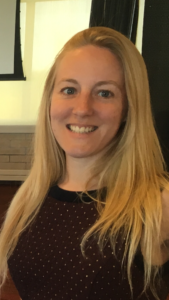Philippa Juliet Meek is a PhD student in Theology and Religion. Her research examines public perceptions of fundamentalist Mormon plural marriage based on media representations and what those representations look like in comparison to the realities of Mormon polygamy as it is practiced today. Philippa has previously gained degrees from the University of South Florida, Durham University (where she was a member of University College), and University of Wales, Swansea. She has been surviving lockdown with her partner Richard, who is a commissioned officer in the Royal Navy, and their two dogs: Khaleesi and Jenny.
Tackling a PhD is undeniably a challenging and daunting task fraught with financial concerns, and the pressures of publishing, presenting conference papers, and networking in order to create links that can hopefully lead to success once one enters what is an extremely competitive job market. For older students with established lives, which may include additional financial commitments and families, life as a PhD student can become even more of a challenge. Particularly in cases where one has been in the workforce and has to give up a good income to return to university.
Yet while PhDing as an older student can include additional challenges and commitments, it can also be an enriching experience both for the student and their family. There are some tricks to make the transition easier, as well as ways in which PhD life can fall in sync with family life. A great one for me has been to mirror my partner’s work schedule and leave periods, rather than the university holidays. This has ensured that we get to take time off together at the same time. Fellow ‘older’ PhD students with children have also told me how they have been able to sync their work schedules with the times their children are at school or otherwise engaged.
When living with a partner who also has a demanding full-time job, it can be a challenge to make sure work schedules don’t conflict too much so that childcare needs, or pet care, are taken care of while also giving students the opportunity to attend conferences and travel for research. My personal situation is compounded by the fact that my partner is in the Armed Forces and therefore the demands of his job are perhaps more rigid than those whose partners work in the civilian sector; with frequent moves being par for the course. However, we have been able to make things work by using shared diaries on apps such as the calendar on our phones and planning ahead. Other families have their unique circumstances that will affect their personal situations.
In other aspects of life, especially in lockdown, we have managed to figure out some tricks that help things work smoothly, such as utilising separate rooms to work in if conference calls would distract the work of one another. Many times, the words, ‘I’ll cook dinner tonight’, can be a Godsend when I’m on a roll and want to get a few more words written down before ending the workday. Likewise, ‘why don’t we finish early today and go for a walk’, can be heaven-sent words when suffering from a tired brain suffering from writer’s block.
Recently, during my upgrade viva, my partner took our dogs out for a run and then entertained them in the garden so that they wouldn’t cause any disruption. He was also on hand with a cold bottle of champagne in hand to celebrate with me afterwards. While entering into a PhD as an older student can be a tough family decision, it can also provide the student with a level of support that they may have missed out on if they entered their PhD at a younger age, which can ultimately make for a positive and enriching PhD experience.
Written by: Philippa Meek
Twitter: @philippajmeek

